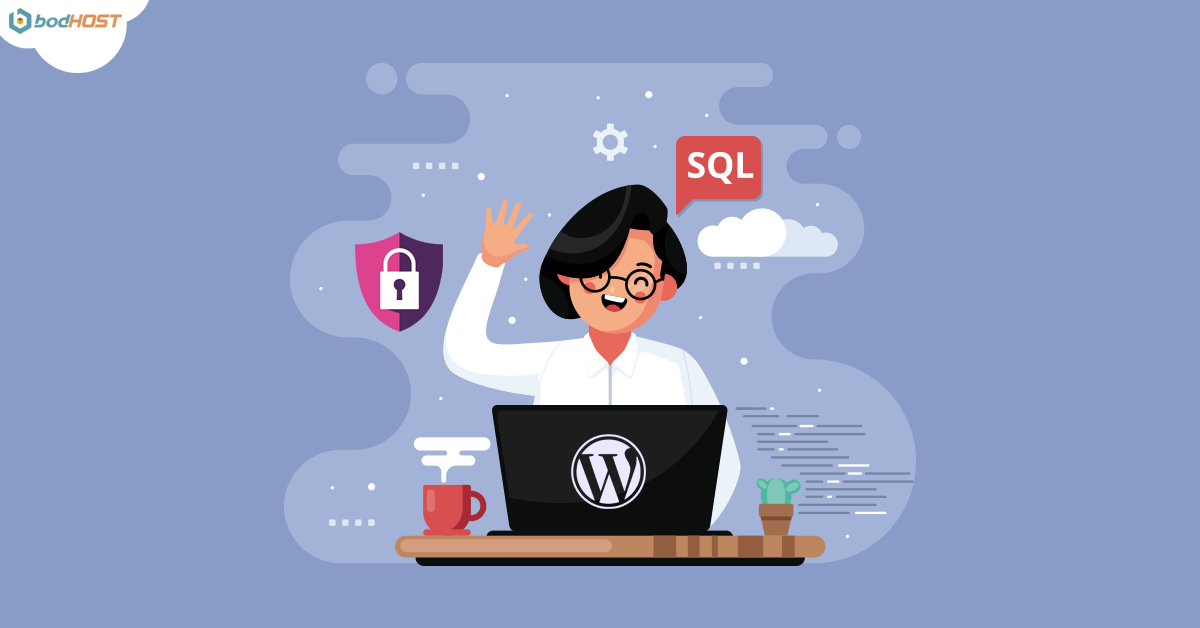In today’s time, WordPress is the leading CMS tool having a market share of 61.8%. Besides leading the CMS segment, a huge number of websites are also hosted on WordPress. An online statistic states that nearly 455 million websites are hosted using WordPress. Since many users prefer WordPress hosting for their sites, WordPress must be secured against all forms of various online threats.
Out of these threats, SQL Injection (SQLi) remains the most persistent one. Talking about SQL, it is the most commonly used database language designed for managing data present in a relational database management system (RDBMS).
SQL Injection Attacks occur when the security vulnerabilities present in an application’s software are exploited and hackers introduce malicious SQL commands in the backend. Usually, the SQL commands are carried out by inserting them into the entry fields at the time of their execution. SQL commands control the database servers inside a web application, and hackers can run SQL commands for manipulating, altering, or even removing data.
How Are SQL Injections Introduced in WordPress Sites?
In WordPress websites, SQL injection can be easily carried out using direct approaches and multiple entry points. These entry points in a WordPress website often include- the signup forms present on the website, contact forms, search fields, etc. Website owners tend to put various criteria for site visitors while filling out the forms present on the sites. Hackers introduce malicious SQL commands in such fields (that might have been kept as plain text) and then ask for the user login credentials and other vital data.
How to Protect WordPress Websites?
WordPress website owners can use the following methods for protecting their sites against SQL Injection threats-
- Scanning Websites for Malware and SQL Injections Website owners can use vulnerability scanning tools for protecting their websites. Today, leading security service providers like bodHOST offer a website vulnerability scanning tool like VTMScan. These website scanning tools help in protecting sites & web applications from SQL Injection attacks and other online threats. WordPress also offers in-built security plugins for determining malware and other vulnerabilities. The user needs can download these plugins and perform the scan on their sites.
- Keeping Websites Updated Most website owners often ignore the various security approaches by not updating their websites with the latest versions. Most small business websites often end up being the end target for hackers to introduce SQL Injections. Thus, it becomes inevitably essential for website owners to keep their websites updated with the latest security patches covered. Lastly, all the website security procedures must be strictly followed for the complete protection of WordPress sites.
- Monitoring the Downloaded Plugins and Themes Most of the SQL-based vulnerabilities in WordPress are associated with its themes and plugins that might not have been updated. Any WordPress site admin must monitor the plugins and themes that they download. One should always download the latest plugins and themes for avoiding any security lapses in WordPress sites. Such security lapses can introduce malware and have severe implications for the user’s website and, ultimately, their business.
- Not Disclosing the WordPress Versions To ensure the security of sites, the admins must avoid disclosing their WordPress versions. In case the versions are announced, then it opens chances for hackers to harness the vulnerabilities and exploit them.
- Staying Alert for SQL Servers WordPress site administrators must monitor their sites from the early stages by monitoring their SQL servers. Any error caused in the programming stage can aid hackers in exploiting these to execute SQL attacks. Thus, admins and owners must remain alert and monitor their SQL servers; in case the errors are caused, they must be detected and repaired at the earliest.
- Changing Database Prefixes When Installing WordPress The WordPress site admins and owners must make sure that they have changed the default WordPress database prefix when installing WordPress. One should remove these prefixes as they might attract hackers for injecting SQL malware in the table. Also, unnecessary functionalities that are of no use should be mandatorily disabled. Such unused functionalities often make it easier for hackers to perform SQL Injection attacks on WordPress sites.
- Storing Website Database Separately for Quick Restoration This method is not involved with protecting WordPress sites; however, it can be seen as a remedy in case an SQL Injection has taken place. To avoid all the issues related to downtime and other losses that a business can have due to such threats, the site admins must store their website’s data and databases on a Cloud-based solution. Keeping databases on a Cloud-based solution can be very helpful for quick retrieval of websites in case it has suffered an SQLi attack.
Concluding Remarks
With a large number of websites using WordPress hosting, it becomes inevitably crucial for website owners to secure these websites. Using proper security mechanisms like- deploying vulnerability scanning tools or storing the databases on a Cloud-based solution can be effective mitigation techniques for countering SQL Injection and other online threats.
If you want to protect your website, do it with Imunify 360.
